Facilitating women's access to land is helping to improve forest restoration and food security in Ghana.
Women at the forefront of climate action
December 1, 2022
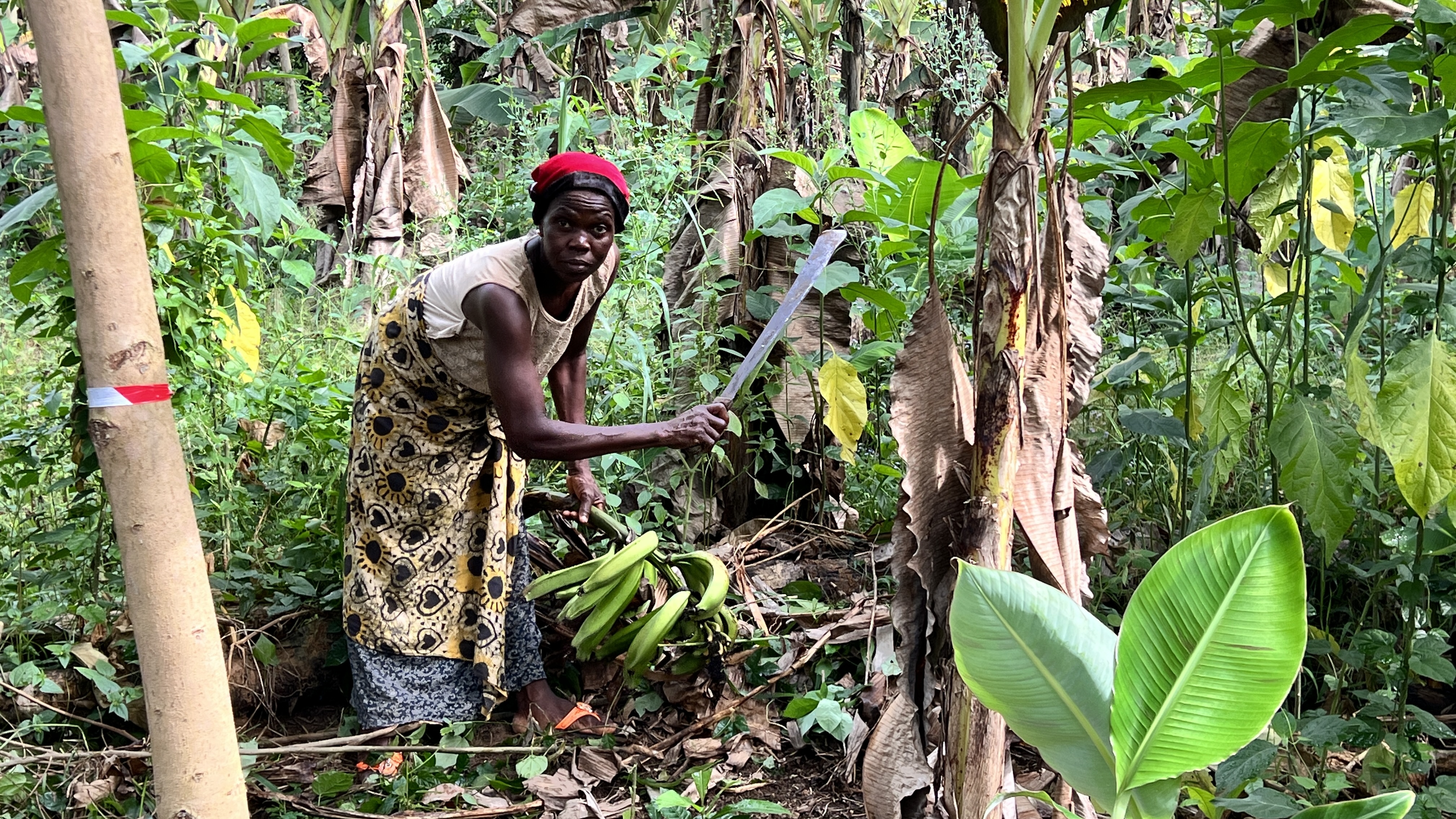
Theresa Mawusi working in her farm.
“3 years ago, I didn’t have my own farm but was supporting my husband on his cocoa farm. You see, am a very hardworking woman, and having my own farm gives me so much joy and independence”, noted Theresa Mawusi.
Located in the small town called Anwianwia in the Asunafo North Municipal Assembly of the Ahafo Region of Ghana, Theresa and some of her peers narrated how difficult it is for women to have access to farmlands in communities around forest reserves.
“The problem is that we have limited farming land in this area because of the Ayum forest reserve. We grow a lot of cocoa here so mostly is the men who get access to the limited land to farm”, stated Rose Praman who lives in Akwaduro, another village in the Asunafo-North Municipality.
Addressing land inequity
The system that regulates access and control over land and land tenure differs widely across regions in Ghana. Until the passage of a new land Act in 2020 (Act 1036) to safeguard spousal land rights, which presumes that any land acquired during marriage by one spouse is co-owned by both spouses, generally men were having exclusive property rights to land excluding women. Despite the new law, feedback from the women shows that the situation has not changed on the ground. Evidence shows that equity in access and control over land is an important tool for women’s economic empowerment in developing countries.
As part of efforts to support the country meets its climate mitigation targets, the United Nations Development Programme (UNDP), in partnership with the Ghana Cocoa Board and Mondelez International are supporting farmers to have access to degraded forest reserves for agroforestry through the Environmentally Sustainable Production Practices in Cocoa Landscapes project.
Through the project’s interventions and with the support of the Forestry Commission, women like Theresa and Rose now boast of 10 acres and 5 acres of farms respectively in the degraded Ayum Forest Reserve. They are mix cropping vegetables and plantains with trees. The approach for this intervention is known as the Modified Taungya System (MTS), where the project team supports the farmers to get access to degraded forest reserve land for the planting of food crops and economic trees like Mahogany (Khaya ivorensis), Onyina (Ceiba pentandra), Ofram (Terminalia superba), Cedrela (Cedrala odorata), Mansonia (Mansonia altissima) and Emire (Terminalia ivorensis).
For the women, the opportunity to have access to land has improved their source of livelihood, whiles taking care of the environment.
“I get about 250 plantain bunches from my four-acre farm per harvest season, most of which I sell. I can harvest four times within three years before the plantain trees stop yielding. The trees we plant with the crops also give us shade on the farm,” Vero Asilenu, one of the project beneficiaries stated.
Payment for ecosystem services
The project has since 2020 been supporting about 270 farmers, including 155 women with vegetative parts (plantain and cocoyam suckers), and vegetables (ginger, onion, tomatoes, and okro). The farmers also benefit from capacity building on good agro-forestry practices and are getting rewards for their efforts.
“We get food and do small savings with the Village Loans & Savings Scheme that we are members of, and also save with the bank. The thing is that you have helped us so we also have to work hard in order not to disgrace, so we can get more support”, Rose added.
The MTS, which is a legally binding land lease arrangement, allows the farmers to co-own the plantations with the Forestry Commission. They are entitled to the MTS plots till the tree reaches canopy height. The project is also in the process of paying the farmers to incentivize them, through a results-based approach, based on survival rates of trees planted, to enable them to invest in the establishment of additional MTS plots and help accelerate climate action.
“We have completed the tree census to estimate the survival rate to facilitate the payment of the ecosystem services, which is performance-based. The data shows that annual payment will range between Ghc200-Ghc5000 per farmer and the plan is to continue this arrangement for six years when trees will have formed canopy”, added Atsu Titiati, the UNDP Project Manager.
Since 2020, the farmers have planted almost half a million economic seedlings, helping to restore about 328 hectares of the degraded Ayum Forest Reserve.
“Our focus is to reduce carbon emissions by restoring degraded forests while also helping to provide an additional source of income for the farmers. We want to upscale the MTS after the successful pilot in the Asunafo-North Municipality and this needs more partnerships," explained Ayirebi Frimpong, Forest Specialist at UNDP Ghana.
Inclusive natural resource management for all
The race to win the climate fight requires more partnerships to facilitate the participation of both men and women in climate action at all levels. Trees are very critical in the fight against climate change as they capture carbon and reduce emissions from the atmosphere.
The story of these women demonstrates that, when we expand women’s access to productive resources, we can improve food security, livelihood, and reduce carbon emissions. Strengthening women’s access to land will ensure that natural resources management is inclusive for a sustainable and a more equal future for all.
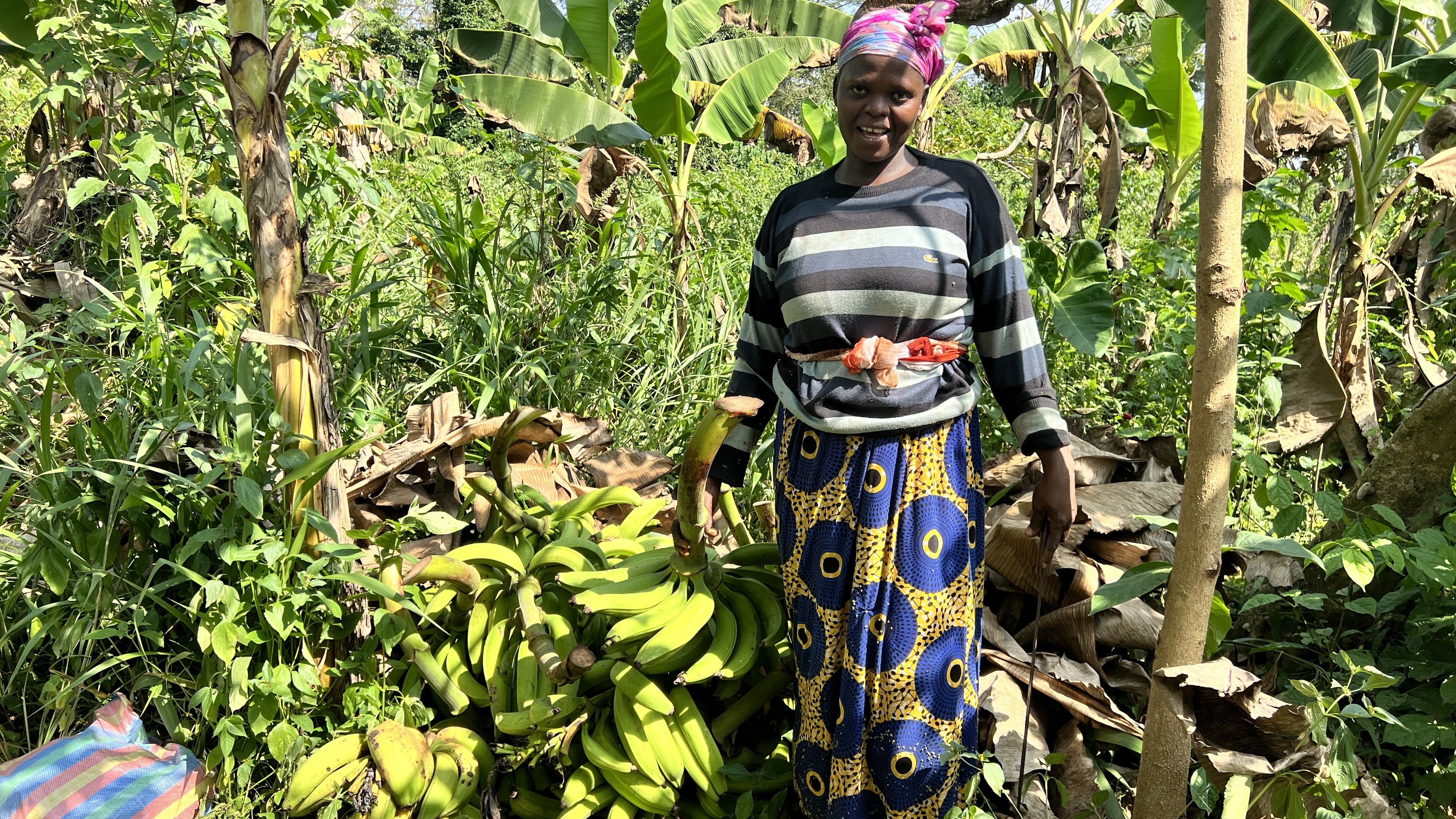
Vero Asilenu, one of the project beneficiaries.
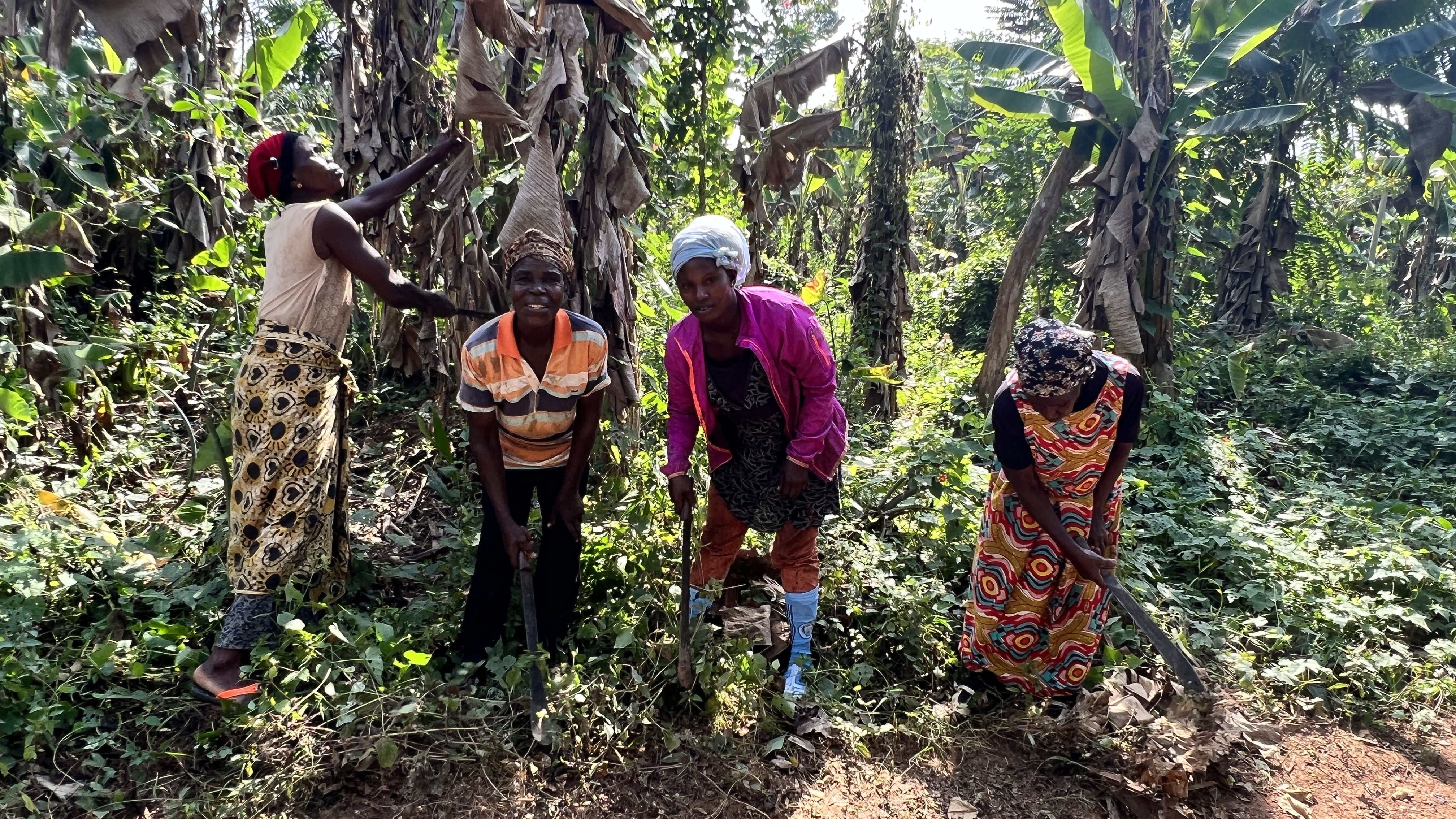
Women working in their farm
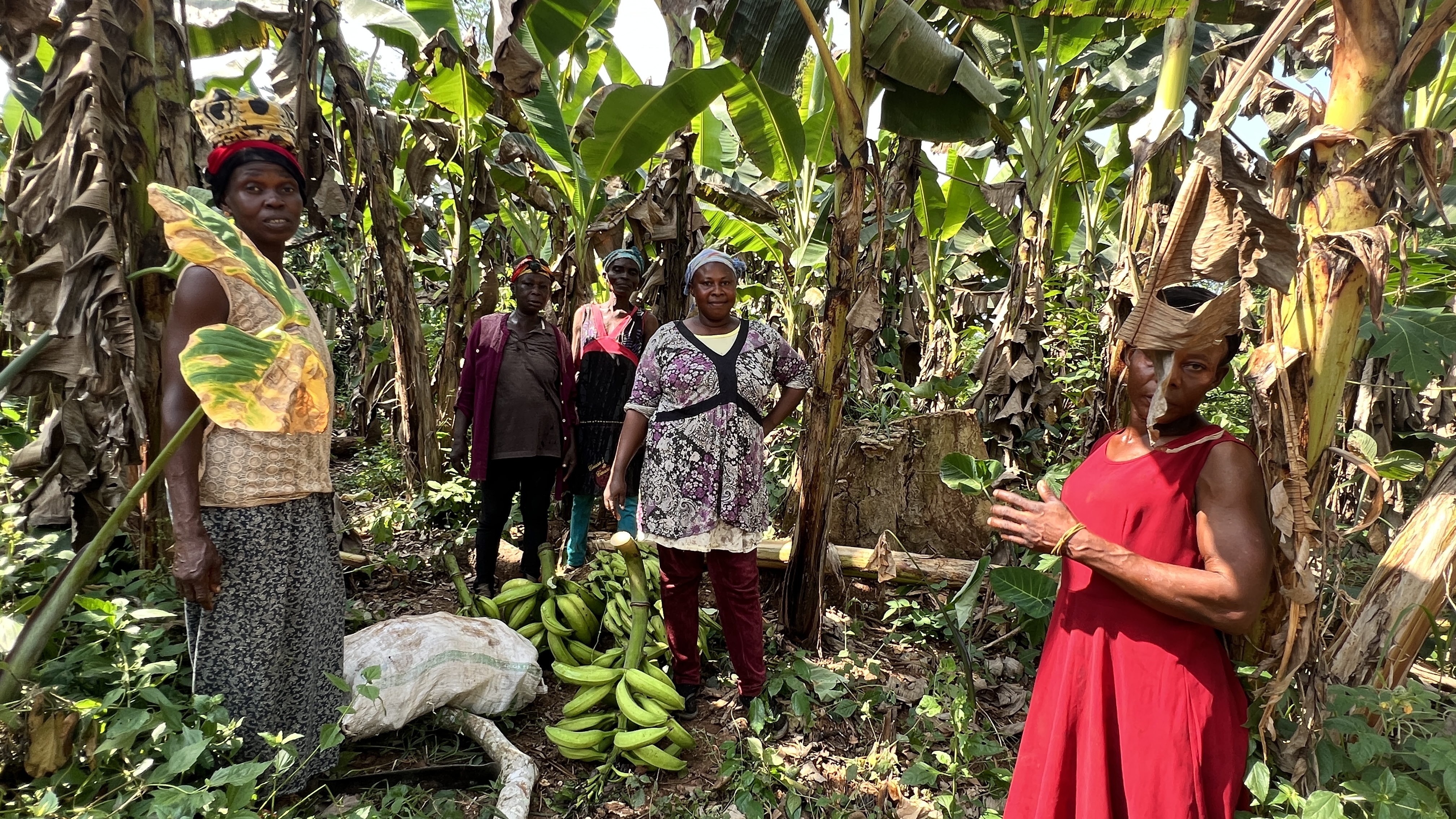
Some of the women in their farm
Rose Praman interacting with the project District Coordinators in her farm.
Ayirebi Frimpong, Forest Specialist at UNDP Ghana inspecting an 8-month old Onyina (Ceiba pentandra) tree on the field.
Atsu Titiati, the UNDP Project Manager behind the Forest Specialist on the field.
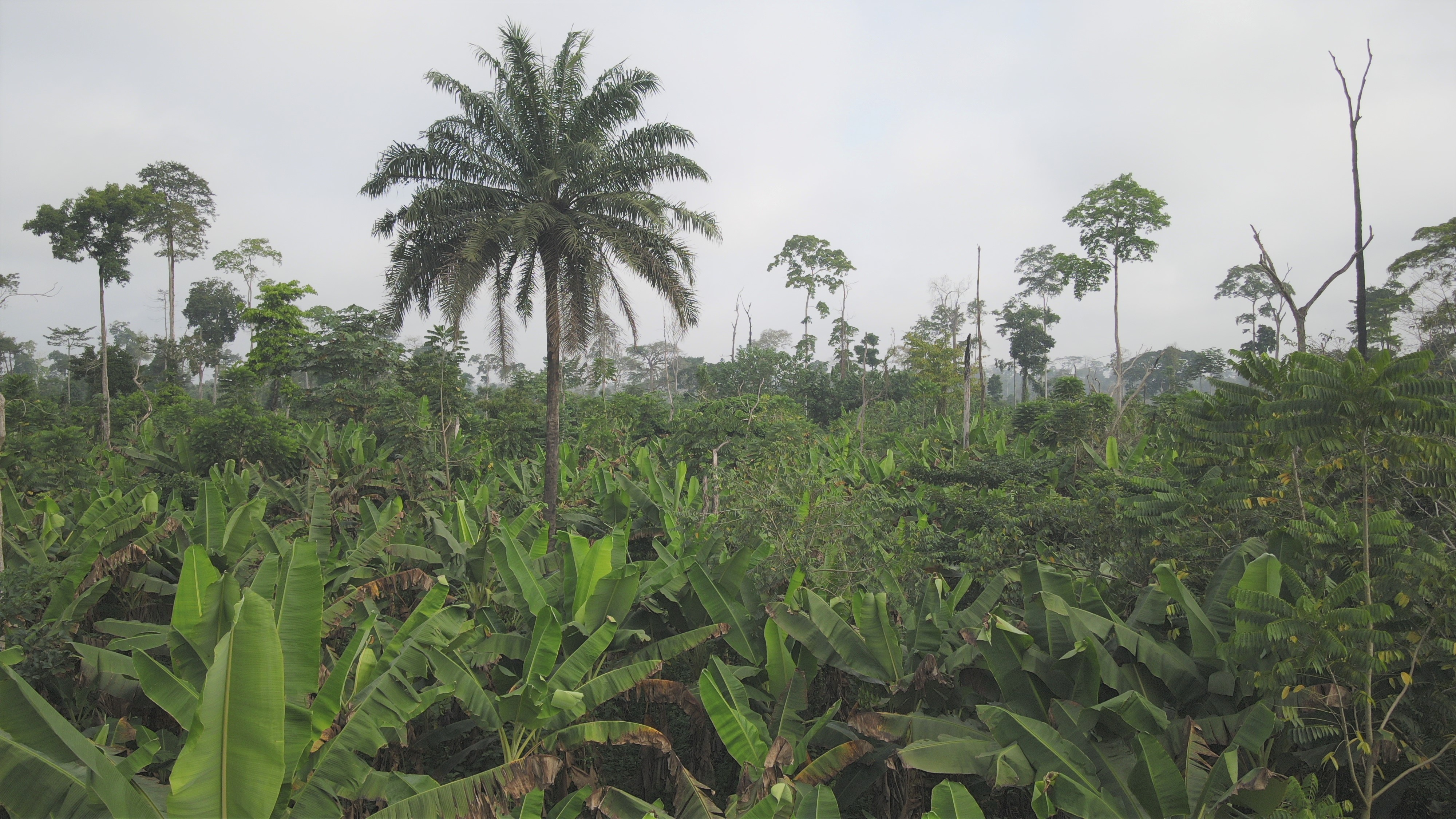
A degraded portion of the Ayum Reserve Forest under restoration.
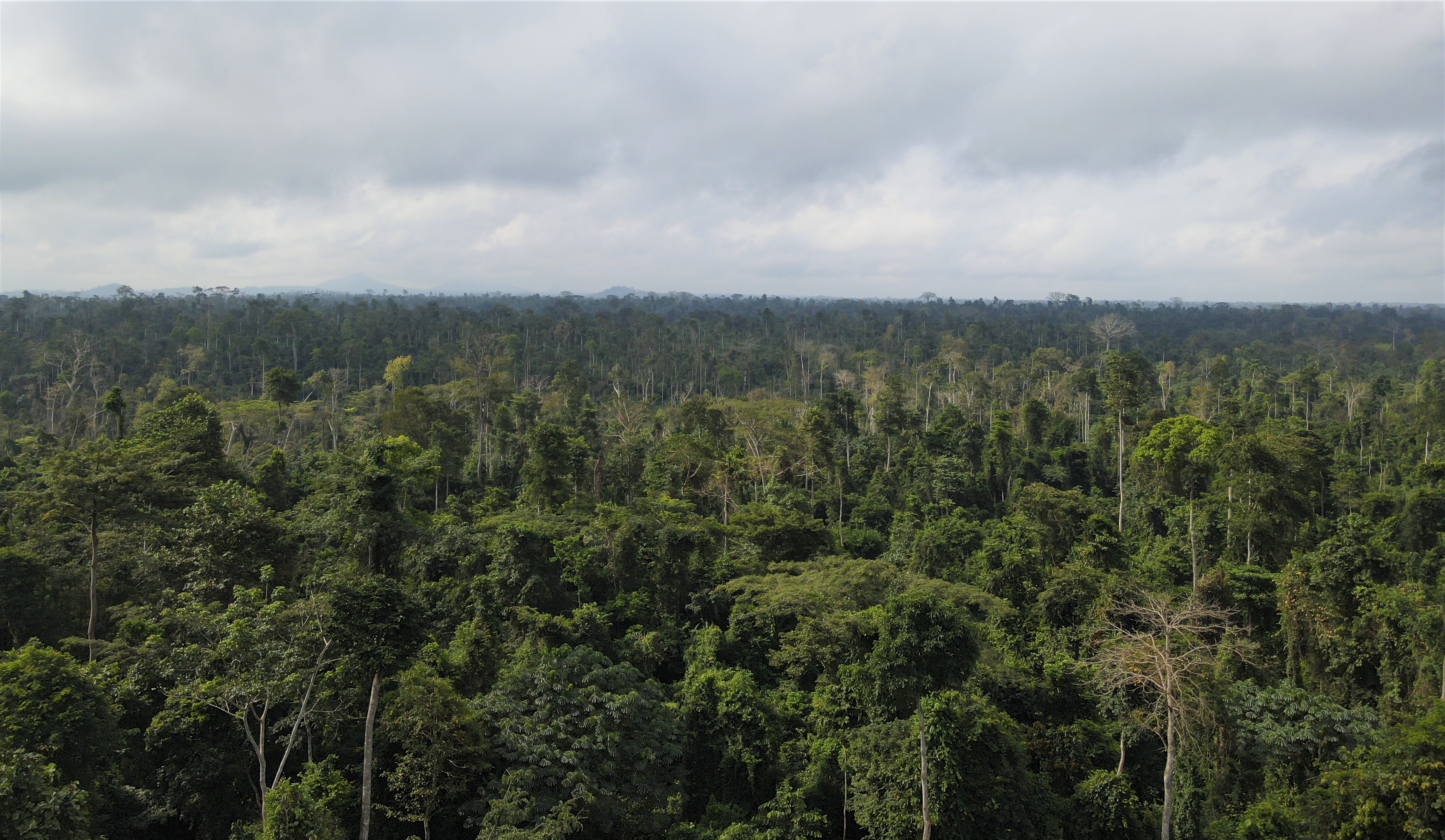
An aerial view of the Ayum Reserve Forest.
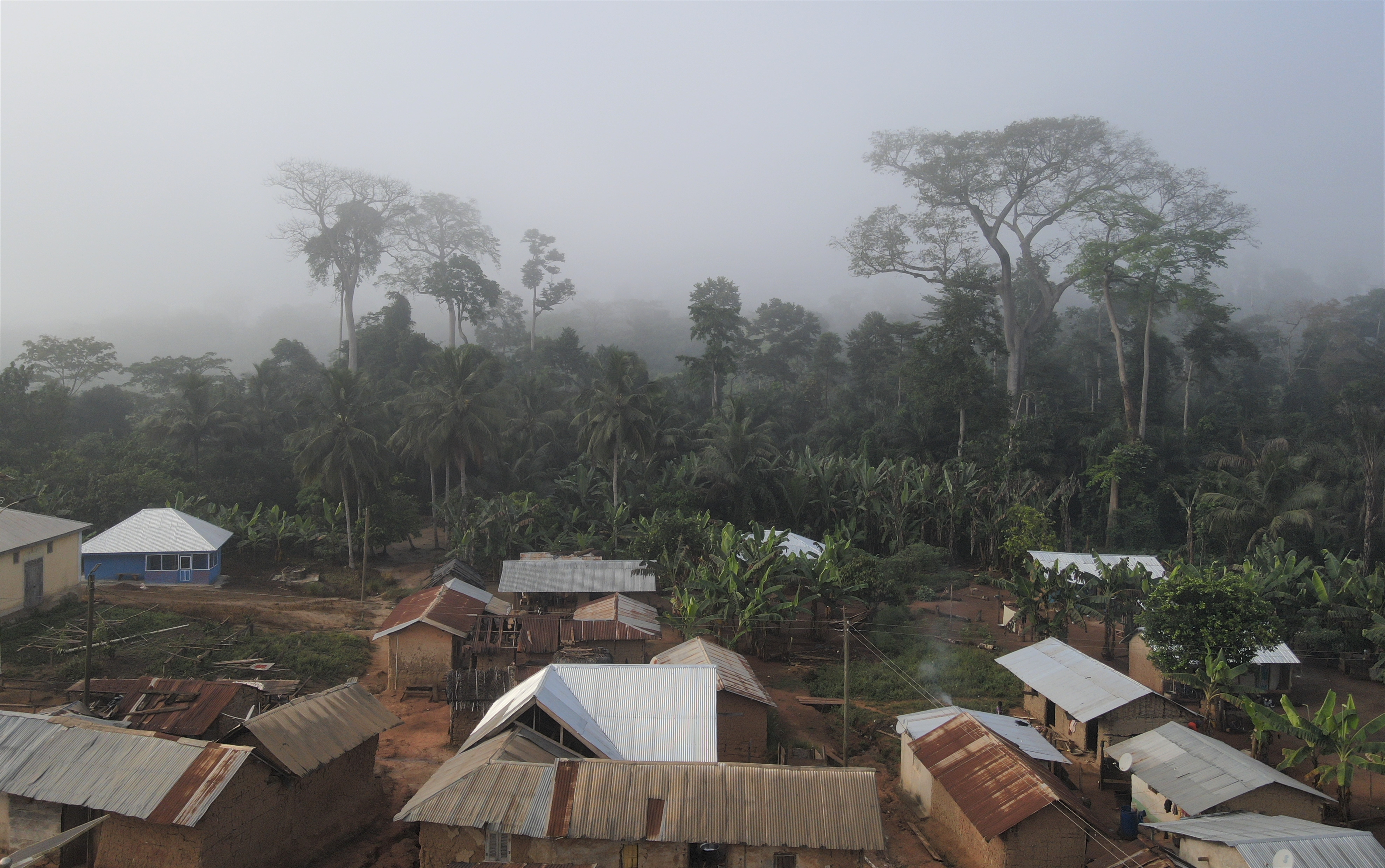
An aerial view of the Akwaduro, one of the project beneficiary communities in the Asunafo-North Municipality of Ahafo Region of Ghana.

 Locations
Locations



